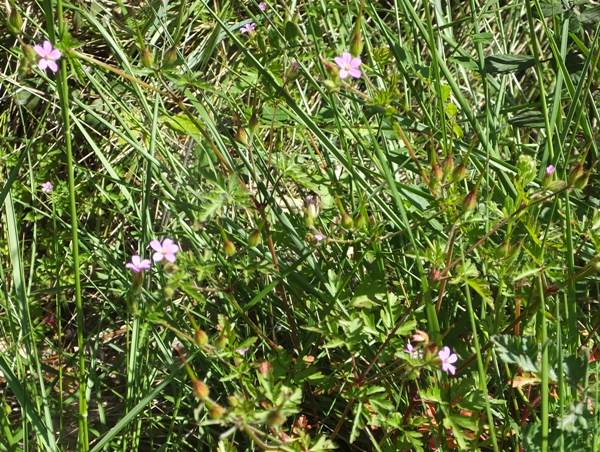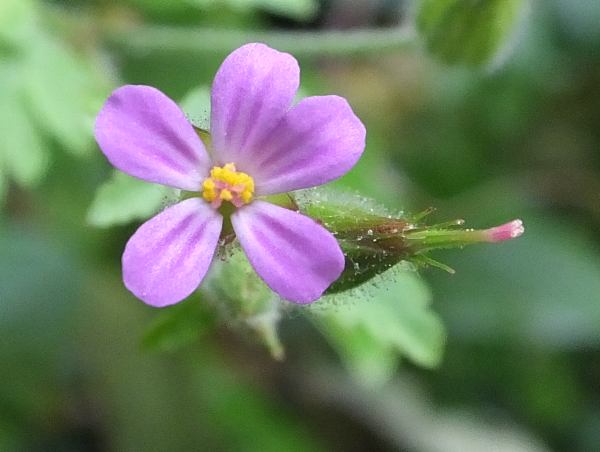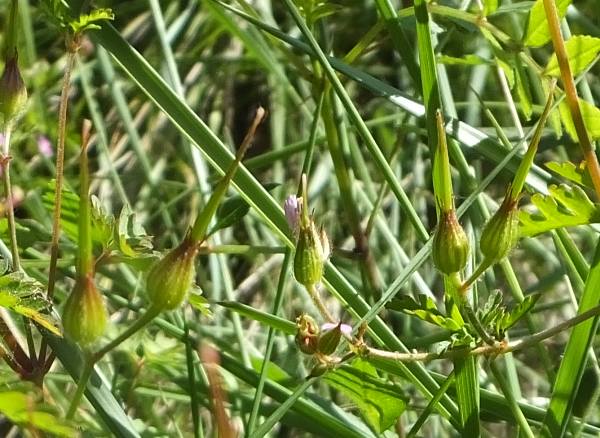Geranium purpureum - Little Robin
Phylum: Magnoliophyta - Class: Equisetopsida - Order: Geraniales - Family: Geraniaceae

This annual or sometimes biennial member of the (wild) Geranium family is a rare sight in Britain and Ireland, where it is often mistaken for its close relative Herb Robert.
Description
Little Robin can grow up to 60cm tall (but 20 to 30cm is more common), producing tiny pink five-petalled flowers that are a mere 7 to 12mm across. A distinguishing feature is the yellow colour of the anthers - in Herb Robert they are orange.

The three- or five-lobed hairy stalked alternate leaves of Geranium purpureum are deeply dissected. The branching stems are also hairy.
The fruits (seed capsules) of Little Robinare beaked, ridged and hairy.
Distribution
Geranium purpureum is very rare inBritain and Ireland, where it is found mainly on the south coast; however, this species is more common in the Channel Isles. This member of the family Geraniaceae is much more common on the mainland of Europe, and particularly in central and southern countries including the Mediterranean islands.

Habitat
Little Robin favours dryish banks and neutral or alkaline soils.
Blooming Times
In Britain and Ireland Little Robin can usually be seen in bloom from May until September.
Etymology
Geranium, the genus name, comes from the Greek noun geranos, meaning Crane (birds of the group of species known as the Gruidae). It is a reference to the beak-like fruit (seed capsule) which is reminiscent of the long beak of a Crane. As for the specific epithet purpureum, it apparently refers to the flower colour, although in many instances the petals are pale to mid pink.
Similar Species
Herb Robert Geranium robertianum is similar but has larger flowers and is much more common and widespread across Britain and Ireland.
The Little Robin plants shown on this page were photographed in Les Salces/Saint Privat, in southern France during May.
Sue Parker's latest ebook is a revised and enlarged edition of Wild Orchids in The Burren. Full details here...
Buy it for just £5.95 on Amazon...
Please Help Us: If you have found this information interesting and useful, please consider helping to keep First Nature online by making a small donation towards the web hosting and internet costs.
Any donations over and above the essential running costs will help support the conservation work of Plantlife, the Rivers Trust and charitable botanic gardens - as do author royalties and publisher proceeds from books by Pat and Sue.

